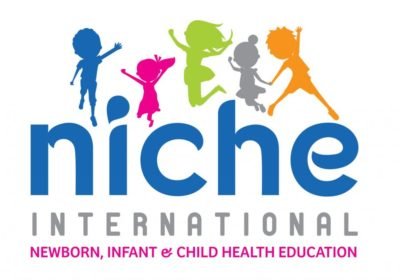The rights of children across the world are enshrined in the United Nations Convention on the Rights of the Child, or UNCRC, signed by all UN members except the USA. The Convention has 54 articles that cover all aspects of a child’s life and set out the civil, political, economic, social and cultural rights that all children everywhere are entitled to. It also explains how adults and governments must work together to make sure all children can enjoy all their rights.
Every child has rights, whatever their ethnicity, gender, religion, language, abilities or any other status.
You can read more about it at https://www.unicef.org.uk/what-we-do/un-convention-child-rights/.
 The UN rights of the child are often violated when families are in situations of conflict. In particular articles 19 (protection from violence, abuse and neglect) and article 38 (war and armed conflicts) from the UN Convention, are relevant in this regard.
The UN rights of the child are often violated when families are in situations of conflict. In particular articles 19 (protection from violence, abuse and neglect) and article 38 (war and armed conflicts) from the UN Convention, are relevant in this regard.
Over the last 2 years, while NICHE has been working in Cameroon, West Africa, we have seen how civil unrest there has affected patients, and indeed, hear firsthand from health professionals who continue to try to care for them.
A young doctor who attended one of our Newborn Care training courses earlier this year in Cameroon, has recently written about the direct effects on children’s health that she has witnessed.
– – – – – – – – – – – – – – – – – – – – – – – – – – – – – – – – – – – – – –
Over the past three years, the English-speaking North West and South West Regions of Cameroon have been affected by civil unrest. Since the crisis started in October 2016 following a strike action by teacher and lawyer unions, it has escalated to an armed conflict. There has been heavy military deployment to the regions and violent attacks by the opposing forces in urban and rural areas, leading to disruption of activities in communities, displacement from homes, and loss of property and lives. Education, business and healthcare are some of the most directly hit activities in the different communities affected by the conflict. Its adverse effects are numerous, including difficulty in providing and accessing proper health care facilities, causing diseases, which had been under control, to regain grounds, become virulent and lead to increasing levels of disability and death.
Working in the Pediatric Unit of the Bamenda Regional Hospital over the past months, we have witnessed this centre, which is the only very accessible reference centre of the North West Region, struggle to manage the current challenges despite the continuing conflict. We have seen a rise in the severity of epidemic diseases like Malaria and Dysenteric illnesses, seen by the 198 cases of malaria treated from January to August 2019 as to the 168 treated in the same duration in 2018. In 2018 alone, 119 cases of meningitis were managed in our health facility. Added to these, are diseases which are now poorly managed due to lack of health facilities and personnel in the surrounding villages, notably Tuberculosis, HIV/AIDS, Sickle cell Disease, Pneumonia, and Severe Malnutrition.
Children are the most affected, with two out of every five inhabitants of our Region being under the age of 15 years old. As the conflict continues, access to hospitals and other health centres from surrounding villages remains very difficult for these populations notably the children. By the time they successfully arrive at facilities like ours, it is either too late and they expire, or they end up disabled.
The lack of adequate health infrastructure and personnel especially in the periphery of Bamenda and surrounding villages has also adversely affected vaccination coverage for children in these areas. We are therefore exposed to a high risk that vaccine-preventable diseases may resurface, with catastrophic effects on the children. We have unfortunately had cases of children as old as 1 year who haven’t received any vaccines since they were born in the bushes to displaced mothers.
On a final note, we have been witnessing an alarming rise in cases of sexual abuse on children. The numbers are on the rise, thereby increasing the risk of sexually transmitted disease infections as well as additional psychological trauma, which would both have disastrous consequences.
– – – – – – – – – – – – – – – – – – – – – – – – – – – – – – – – – – – – – – – – – – – – – – – – – – – – – –
The current crisis in Cameroon is complicated. Good resources to look at if you want to know the timeline of the conflict are:
https://africanarguments.org/2019/08/13/cameroon-crisis-three-deepening-divides/ and
https://www.bbc.co.uk/news/av/world-africa-44459488/cameroon-crisis-explained which has links to up to date information like the recent release of the opposition leader from prison and the current peace plan.










 The UN rights of the child are often violated when families are in situations of conflict. In particular articles 19 (protection from violence, abuse and neglect) and article 38 (war and armed conflicts) from the UN Convention, are relevant in this regard.
The UN rights of the child are often violated when families are in situations of conflict. In particular articles 19 (protection from violence, abuse and neglect) and article 38 (war and armed conflicts) from the UN Convention, are relevant in this regard.










